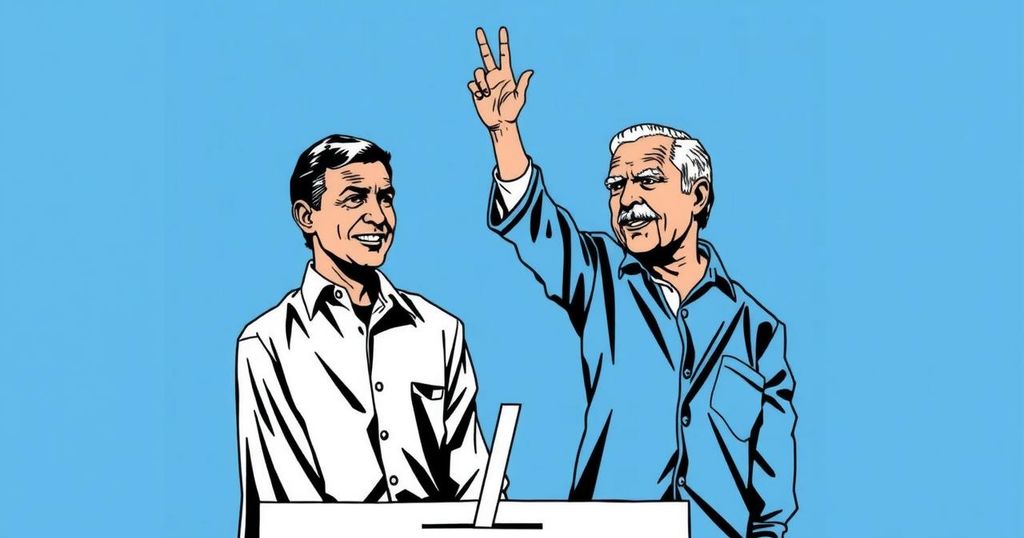Tightly Contested Presidential Election in Uruguay Set for Sunday

Uruguay’s presidential election is set for Sunday, where center-left candidate Yamandu Orsi faces conservative Alvaro Delgado in a close contest. With polls suggesting fewer than 25,000 votes could separate the two, each candidate seeks support from undecided voters after a tightly contested first round. The election reflects Uruguay’s unique political landscape, which contrasts with regional trends of polarization.
Voters in Uruguay are set to participate in a pivotal second-round presidential election, taking place on Sunday. In this tightly contested race, opposition center-left candidate Yamandu Orsi will face off against conservative candidate Alvaro Delgado, who has garnered support from a third-placed ally. With the final opinion polls predicting a close outcome, fewer than 25,000 votes may distinguish the candidates in this election that follows a year of significant electoral events.
Unlike the polarized elections seen in neighboring countries like Argentina and Brazil, Uruguay’s political environment remains relatively collaborative, with both major opposing parties showing overlapping interests. The polls will open at 8 a.m. local time, concluding at 7:30 p.m., with initial results expected within two hours of closing.
Mr. Orsi, who earned 43.9% of the vote in the initial round, is advocating for a “modern left” policy without intending any drastic policy changes. Conversely, Mr. Delgado, who received 26.8% of the initial vote, is encouraging voters to support the continuity of good governance under President Lacalle Pou, who cannot seek immediate re-election.
Neither coalition emerged with an absolute majority in the lower house after the first round, yet Mr. Orsi’s party holds a majority in the Senate, a factor he claims strengthens his position for leading the next government. Both candidates are vying for the support of the approximately 8% of voters who turned to smaller parties during the first round.
Despite a televised debate not significantly swaying voter opinions, there remains uncertainty among the electorate, with concerns regarding inflation and high living costs affecting voting decisions globally. However, Uruguay’s stable economy may favor Mr. Delgado, who could potentially benefit from the absence of a strong demand for political change among voters as described by analyst Nicolas Saldias of the Economist Intelligence Unit.
Uruguay, a small South American nation recognized for its progressive policies and stable governance, stands as a notable exception in the current political climate of the region, which has seen significant polarization. The country, often seen as a model of stability due to its liberal policies, including the legalization of marijuana, faces a critical electoral decision as voters choose between candidates who represent a spectrum of moderate views. The outcome of this election may influence not only the domestic political landscape but also set a precedent against the backdrop of a global trend where incumbent parties are experiencing difficulties in retaining support.
The upcoming presidential runoff in Uruguay presents a crucial moment for the nation, with candidates Yamandu Orsi and Alvaro Delgado offering voters distinct visions for the future. With polls indicating a narrowly divided electorate, the outcome could ultimately signal whether Uruguay will maintain its moderate political stance or shift toward a new direction. As voters consider their options, the broader implications of this election may resonate beyond national borders, given the prevailing global political climate.
Original Source: www.ndtv.com







